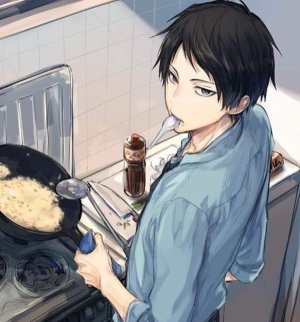Această recenzie poate conține spoilere
A Potentially Great Drama Ruined by Its Ending
This drama starts off excellently, with a unique theme, an engaging narrator, and a solid foundation. The visuals are stunning, the cast delivers great performances, and the conflicts are well-presented.
It explores the many struggles faced by young adults in their late 20s while highlighting deeply rooted Asian culture. Despite being a 24-episode drama with a large cast of characters, every character is well-developed and brought to life.
This drama is emotionally draining for the audience because it portrays situations many people might have experienced. The female lead (FL) has a tough life—at home, school, work, and even in her love life. She endures mental abuse without realizing it. Unfortunately, by the end, she still doesn’t gain this awareness, making her easily forgive people who belittled her—even those who never apologized.
I’m not sure if Xiu Ya is just naturally indifferent or if she has genuinely forgotten what happened, but from a rational perspective, it’s hard to act normal toward people who made even breathing feel like a burden. As an Asian, I’m very familiar with the parenting culture in Asia. The drama portrays this culture so realistically that the mother, who unwittingly hurt her child, never feels remorse or apologizes, even by the end. And it’s true—most parents believe their actions are for their child’s benefit. So if the child gets hurt along the way, that’s just something they have to go through; it’s not the parent’s fault. People often say, “Parents only want what’s best for their children,” but if even we don’t always know what’s best for ourselves, how can someone else?
Shi Ye represents rebellion. Perhaps that’s why he was sidelined in the drama, even though he’s the male lead. This is the first time I’ve seen a male lead without any standout qualities or moments to shine. He never gets the spotlight in the story. Yet his character had so much potential for deeper exploration, which the writer completely squandered. While the other male characters were given numerous strong points, the male lead was left without a single one.
Of all the people close to Xiu Ya, only Shi Ye never told her to apologize. But in the end, why does it feel like Shi Ye’s presence in Xiu Ya’s life was nothing more than a passing breeze? Meanwhile, her ex-boyfriend’s character development is made ridiculously unrealistic.
Zheng Hao is kind; from the start, he just didn’t understand other people’s emotions. Someone like Zheng Hao can indeed become a better person once they start to understand different perspectives. However, in my opinion, people don’t change that quickly. His transformation into a “good” character feels unrealistic, especially since the drama otherwise strives for realism.
Honestly, I feel like it would’ve been better if none of the characters ended up in a relationship. Their thoughts are just too inconsistent. Xiu Ya never realizes what she truly needs, Zheng Hao changes for others, and Shi Ye struggles with low self-esteem after choosing his career path, without even realizing it.
The drama is good—the pacing and the conflicts raised are compelling. The actors genuinely feel like stand-up comedians. Although I didn’t fully understand some of the comedy routines, there were many that made me laugh.
But what’s the point of raising so many social issues if you can’t resolve them?
The reason I gave this drama an 7.5 is that it doesn’t offer closure.
I often watch and read stories with open endings, but none have ever disappointed me as much as this one. Other dramas with open endings still resolve their characters’ issues before leaving things open-ended. This one asks the viewers to resolve the characters’ problems themselves.
So what’s the takeaway from this drama? Frustration? Or a realization of how harsh the world is? Are they saying that even fiction can’t solve these conflicts?
The ending was terrible.
It explores the many struggles faced by young adults in their late 20s while highlighting deeply rooted Asian culture. Despite being a 24-episode drama with a large cast of characters, every character is well-developed and brought to life.
This drama is emotionally draining for the audience because it portrays situations many people might have experienced. The female lead (FL) has a tough life—at home, school, work, and even in her love life. She endures mental abuse without realizing it. Unfortunately, by the end, she still doesn’t gain this awareness, making her easily forgive people who belittled her—even those who never apologized.
I’m not sure if Xiu Ya is just naturally indifferent or if she has genuinely forgotten what happened, but from a rational perspective, it’s hard to act normal toward people who made even breathing feel like a burden. As an Asian, I’m very familiar with the parenting culture in Asia. The drama portrays this culture so realistically that the mother, who unwittingly hurt her child, never feels remorse or apologizes, even by the end. And it’s true—most parents believe their actions are for their child’s benefit. So if the child gets hurt along the way, that’s just something they have to go through; it’s not the parent’s fault. People often say, “Parents only want what’s best for their children,” but if even we don’t always know what’s best for ourselves, how can someone else?
Shi Ye represents rebellion. Perhaps that’s why he was sidelined in the drama, even though he’s the male lead. This is the first time I’ve seen a male lead without any standout qualities or moments to shine. He never gets the spotlight in the story. Yet his character had so much potential for deeper exploration, which the writer completely squandered. While the other male characters were given numerous strong points, the male lead was left without a single one.
Of all the people close to Xiu Ya, only Shi Ye never told her to apologize. But in the end, why does it feel like Shi Ye’s presence in Xiu Ya’s life was nothing more than a passing breeze? Meanwhile, her ex-boyfriend’s character development is made ridiculously unrealistic.
Zheng Hao is kind; from the start, he just didn’t understand other people’s emotions. Someone like Zheng Hao can indeed become a better person once they start to understand different perspectives. However, in my opinion, people don’t change that quickly. His transformation into a “good” character feels unrealistic, especially since the drama otherwise strives for realism.
Honestly, I feel like it would’ve been better if none of the characters ended up in a relationship. Their thoughts are just too inconsistent. Xiu Ya never realizes what she truly needs, Zheng Hao changes for others, and Shi Ye struggles with low self-esteem after choosing his career path, without even realizing it.
The drama is good—the pacing and the conflicts raised are compelling. The actors genuinely feel like stand-up comedians. Although I didn’t fully understand some of the comedy routines, there were many that made me laugh.
But what’s the point of raising so many social issues if you can’t resolve them?
The reason I gave this drama an 7.5 is that it doesn’t offer closure.
I often watch and read stories with open endings, but none have ever disappointed me as much as this one. Other dramas with open endings still resolve their characters’ issues before leaving things open-ended. This one asks the viewers to resolve the characters’ problems themselves.
So what’s the takeaway from this drama? Frustration? Or a realization of how harsh the world is? Are they saying that even fiction can’t solve these conflicts?
The ending was terrible.
Considerați utilă această recenzie?






